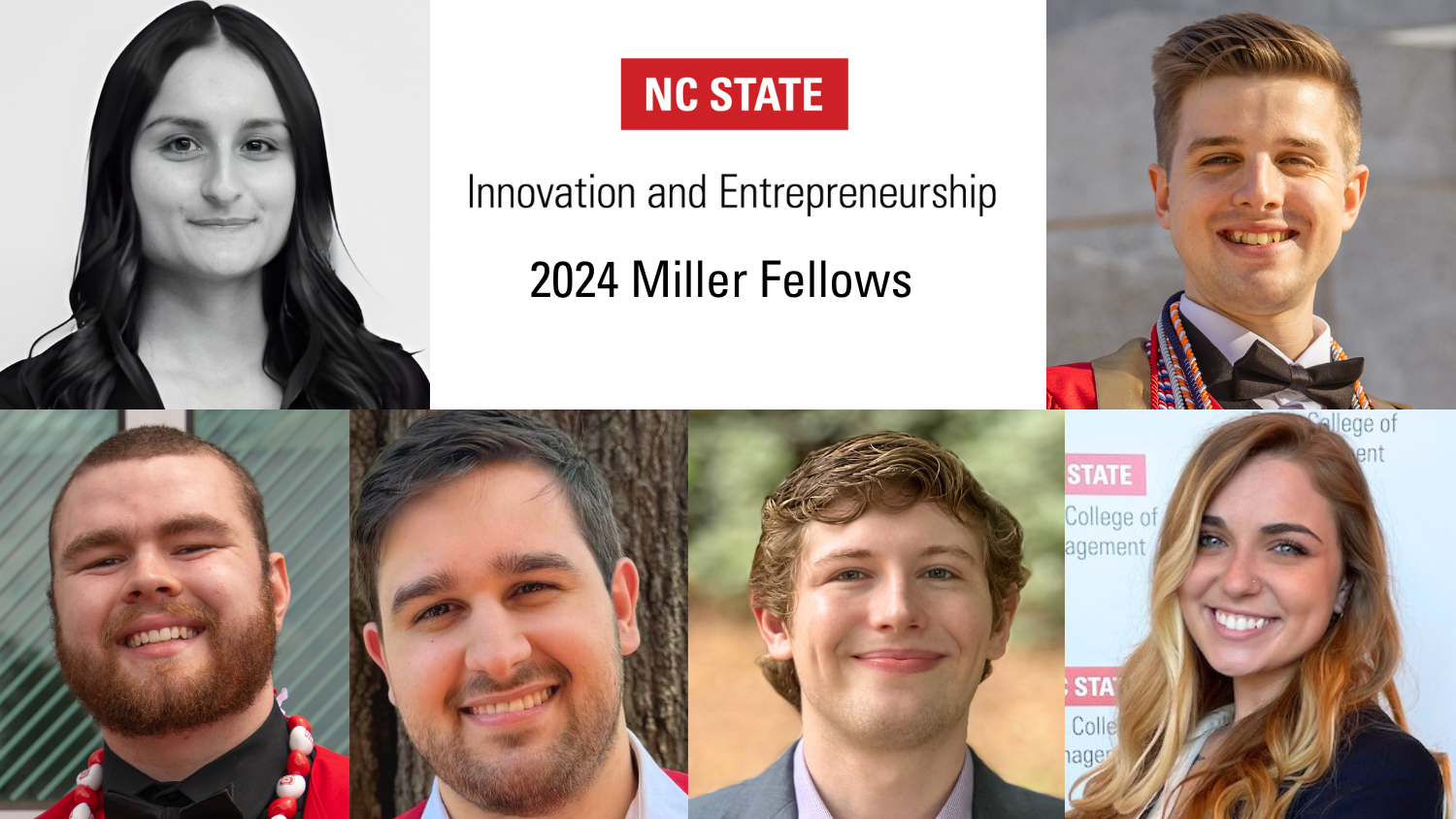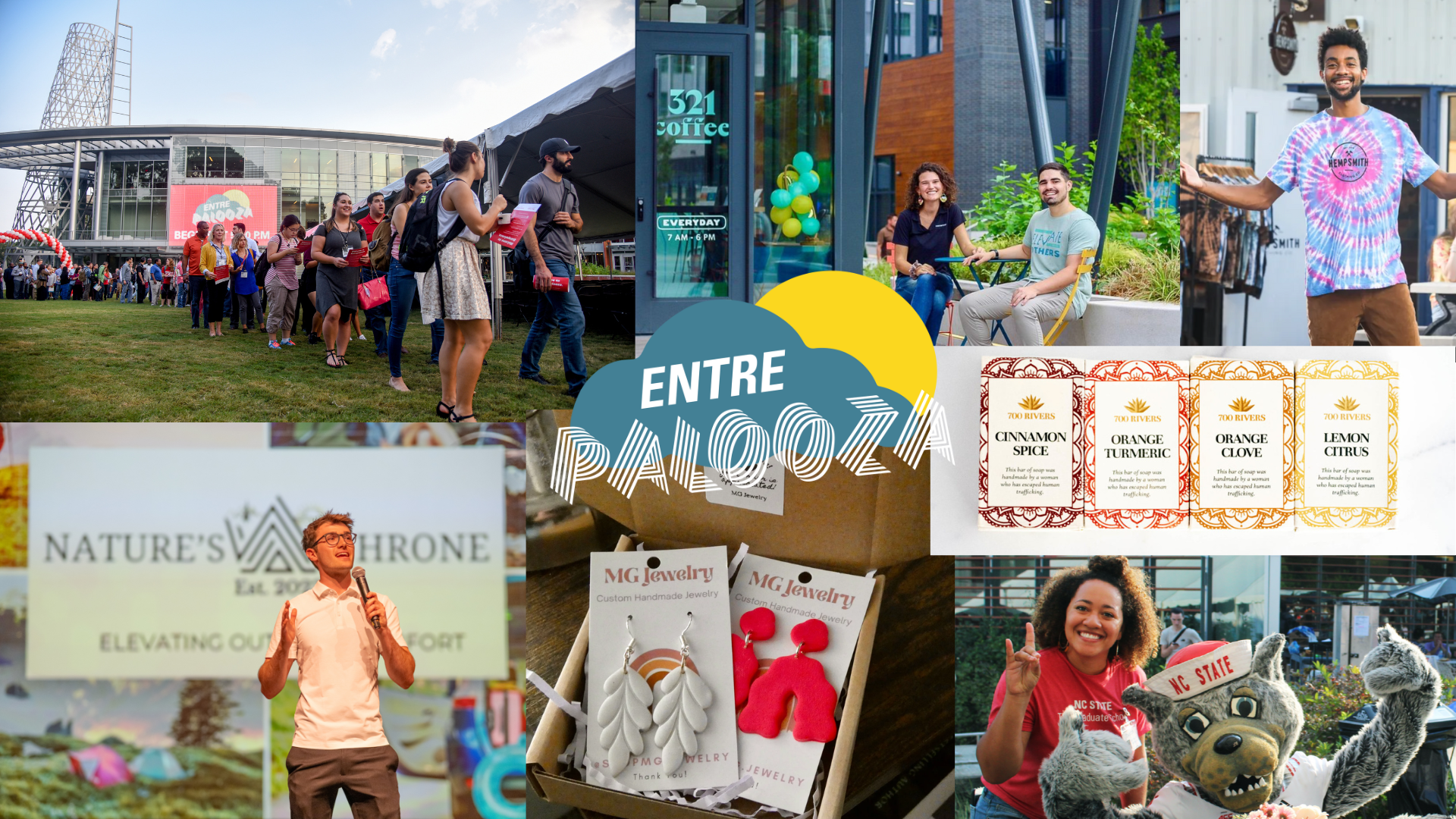Smart Spaces
One day light switches and thermostats may be a thing of the past.
A group of NC State entrepreneurs have launched Atomo, a startup company leveraging indoor spatial intelligence to save energy and improve the indoor experience.
Instead of a person manually turning on a light switch or adjusting a thermostat, Atomo’s technology could create real-time building responsiveness that results in significant energy savings.
“The building could know where you are in the building and control the environment accordingly. It could adjust lighting, heating and cooling systems – the possibilities are endless,” said Atomo cofounder and textile technology student Aidan Special.
Created on Campus
The idea for Atomo began in February at NC State’s Make-a-thon, a campus innovation competition where student teams develop and prototype sustainability solutions.
“When we were doing Make-a-thon, we realized how much wasted energy there is in buildings,” Special said. “Our structures aren’t intelligent, and there’s a massive amount of sustainability data that can come from better understanding people. This data could transform the world.”
After Make-a-thon, the team members decided to make their idea a reality. With help from David Cardarelli of NC State’s Entrepreneurship Garage and Marshall Brain of the Engineering Entrepreneurs Program, the team started asking and answering questions. Was the solution viable? Did it meet a need? Could it become a thriving business?
Since May, Atomo has continued to gain vital momentum, mentorship and funding. The company was selected for NC State’s Andrews Launch Accelerator and the NC RIoT Accelerator Program. Additionally, Atomo cofounder Ryan Kelley received a year-long Miller Fellowship, which supports newly-graduated NC State students who wish to pursue their venture full-time after graduation.
In addition to Kelley and Special, who met last year on an NC State Entrepreneurship trip to Silicon Valley, the Atomo team includes Park Scholars Bryan Cooper and David Flowers, as well as computer science student Scott Joyner and NC State alumnus Matthew Burke.
Next Steps
Currently, the team is working on a project to enhance indoor spaces with augmented reality. Through geographic information systems and a smartphone, Atomo creates interactive digital experiences within a physical environment. In a retail store, for example, that might help shoppers learn more about discounts and products, such as an item’s sustainability features.
“With augmented reality, we can mix the physical and digital world,” Kelley said.
As Atomo continues to develop, it does so with help from NC State’s vast entrepreneurship network and initiatives. The team works from the NC State Entrepreneurship Clinic, where students have access to resources in legal and financial planning, market research, launch strategy and more.
“The NC State entrepreneurship community does not just claim to support entrepreneurs at NC State, they take specific high-impact steps to foster a community that supports innovation. Simply put, I would not be where I am today without the entrepreneurship community at North Carolina State University,” Kelley said.
This post was originally published in Sustainability News.
- Categories:


